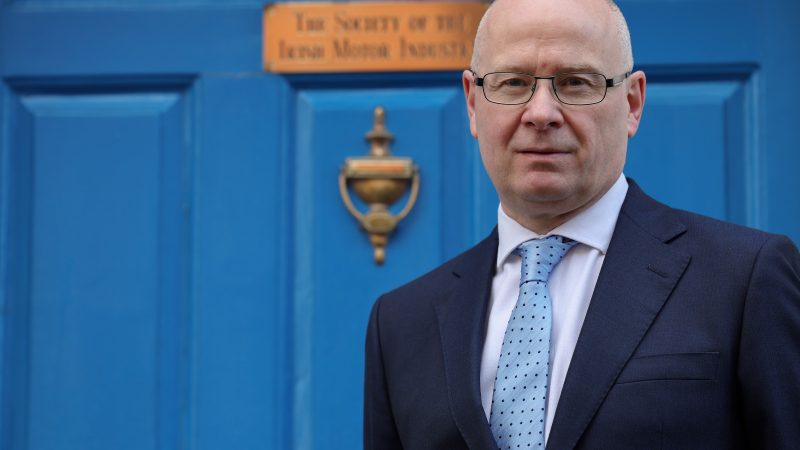How the Next Government Can Aid Forecourt Operators

By Kevin McPartlan, CEO, Fuels for Ireland
With the General Election looming, it is essential to highlight the key areas where the Government and the incoming administration can support an industry that provides over 50% of the nation’s energy needs, employing around 16,000 people directly, with another 50,000 indirectly.
The new Government will take us right up to the end of the current National Energy and Climate Plan (NECP), with the next five years up to 2030 explicitly one of the most important periods in terms of climate action and responsibility. Achieving the NECP’s objectives is a shared priority for the fuel industry, which emphasizes electric vehicle infrastructure, E-fuels, and advanced synthetic and biofuels as long-term solutions.
The goal is clear- the new Government must focus on accelerating the transition to renewable energy sources, with Fuels for Ireland outlining ways in which this can be achieved, alongside measures taken by forecourts and consumers to aid the change:
- Establishment of an Expert Group on Taxation
A comprehensive review of energy taxation is crucial for a balanced transition from fossil fuels to renewable energy.
Our key proposal is to form an expert group of government officials, economists, environmental experts, and industry representatives. This group would advise on a fiscal strategy that supports sustainable energy while maintaining financial stability in the fuels sector. Past efforts to shift consumers to alternative fuels through higher taxes have proven ineffective. A more balanced approach is needed, one that considers advanced biofuels, preserves state revenue, and keeps fuel affordable. The expert group would ensure a fair and practical transition.
To achieve this balanced approach, the Government must urgently reassess its attitude toward energy taxation, in order to facilitate a balanced transition addressing three critical areas; supporting the energy transition, protecting revenue to the State, and protecting the vulnerable
- Enhance Electric Vehicle Infrastructure & Cater to Our Forecourts
Forecourt operators in Ireland are leading the way in EV charger installations, boasting some of the highest numbers in the EU. However, challenges remain, including grid capacity issues, high connection costs, and slow planning approvals. While the Alternative Fuels Infrastructure Regulation sets ambitious targets, current support falls short.
A recent €21 million Government fund is a start, but far more investment is needed. The roadside retail sector need increased support to support climate goals, as they remain hugely impactful in terms of convenience retail and other daily consumer usages for those stopping at petrol stations, collecting 6-7% of the State’s tax income.
To boost EV adoption, we need streamlined planning, government matching funds, and access to the Climate Action Fund. Ultra-fast chargers at forecourts are also essential for keeping up with growing EV demand, in addition to recognising these stations as a pillar of our society.
- Embracing an Open-Minded Approach to Technologies for Decarbonisation
The urgency of climate change requires us to explore all viable technologies for reducing carbon emissions.
Advanced biofuels like Hydrotreated Vegetable Oil (HVO) offer immediate benefits in cutting transport emissions and should be central to climate policy. The 2024-2029 EU guidelines highlight the crucial role of e-fuels in achieving climate neutrality, supporting a technology-neutral approach to decarbonising sectors like mobility. This includes the potential for internal combustion engine (ICE) vehicles running on 100% e-fuels to be exempt from the 2035 ban.
Adopting e-fuels will help decarbonise both new and existing ICE vehicles, aligning with the EU’s broader strategy. Ireland must not only follow European Directives but aim to exceed them. Fuels for Ireland supports this vision, advocating for the integration of e-fuels into climate policy, ensuring a balanced, technology-open approach to achieving climate goals. We urge politicians to support policies that recognise these innovative solutions.
- Incorporating Advanced and Synthetic Biofuels
Promoting the domestic production of advanced and synthetic biofuels is essential for multiple reasons, including enhancing energy security and delivering economic advantages by supporting local agriculture and industry.
As Irish agriculture moves away from carbon-heavy practices, biofuel production presents a viable alternative that aligns with wider environmental objectives. The Government should consider policies that stimulate domestic biofuel production, such as investing in research and development and providing financial incentives for producers. This approach would not only assist in achieving our climate goals but also generate new economic opportunities in rural areas, contributing to a more resilient and sustainable agricultural sector.
- Call for a dedicated Minister of State for Energy
As we have advocated for far and wide in the run up to the Election, it is imperative that Government parties include the call for a dedicated Minister of State for Energy in their manifestos.
Ireland is currently grappling with two of its most pressing challenges: housing and energy infrastructure. While we have a dedicated Minister for Housing, there is no specific Minister for Energy, highlighting a critical gap in our governance.
While the current Government has correctly focused on climate initiatives, there was an insufficient focus on energy infrastructure and how best to achieve these goals. Having a dedicated Minister would align Ireland with other EU countries that have successfully implemented similar positions, demonstrating a commitment to both energy security and climate goals.
- Programming the Fuels Industry and the Irish Government
Fuels for Ireland believes that effective collaboration and maximized efficiency in addressing issues and goals on the path to net-zero carbon require the Government to adopt a framework where industry bodies and State officials can regularly meet to discuss the challenges and opportunities facing fuel providers, forecourt retailers, and consumers. Alongside the call for a dedicated Minister, increasing engagement with officials would be a positive step, giving the industry and those it serves a stronger voice.
The primary aim of the Irish fuel industry is to collaborate with the new Government in establishing clear and effective communication between forecourts, industry bodies, and stakeholders. This partnership will seek to ensure Ireland meets its shared sustainability and climate objectives, while also safeguarding the roadside retail sector.







